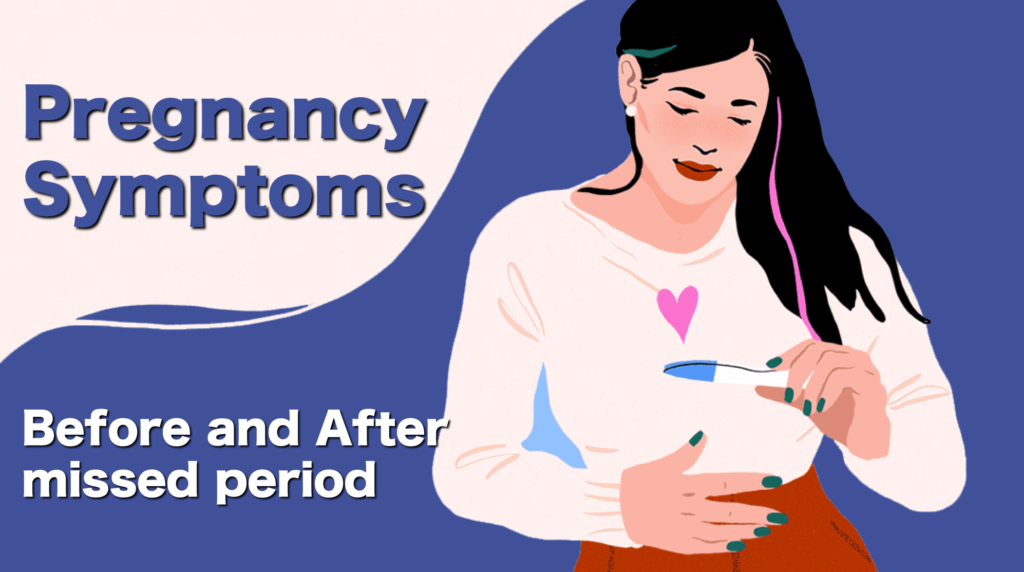The signs of early pregnancy are not the same for everyone, and they can vary from one pregnancy to another. Some people may notice changes in their bodies even before they realize they are pregnant, while others might not experience any symptoms at all. It’s important to remember that pregnancy symptoms can be highly individual, so comparing your experience to someone else’s may not be helpful.
Early Signs of Pregnancy Before a Missed Period
- Raised Basal Body Temperature: Monitoring your basal body temperature can reveal a slight increase of about 1 degree when you conceive. This elevated temperature can persist throughout your pregnancy, although it’s not a definitive sign.
- Smell Sensitivity: A heightened sense of smell can make previously mild odors more intense and unpleasant for some pregnant individuals.
- Breast Changes: Early pregnancy can bring about tender, swollen breasts and darkening or bumpiness of the areolas (the areas around the nipples). Hormones like estrogen and progesterone are responsible for these changes, which prepare the body for breastfeeding. The areolas, which are the circular areas around your nipples, may undergo darkening and an enlargement in size. Additionally, you might observe small bumps on your areolas, known as Montgomery’s tubercles, that will become more prominent and numerous. These tubercles have always existed, but they are now preparing to produce increased amounts of oils to provide lubrication for your nipples when you begin breastfeeding.
- Fatigue: Pregnancy often comes with extreme fatigue due to the energy demands of building the placenta, a crucial support system for the developing baby.
- Implantation Bleeding: It’s possible to experience light spotting and still be pregnant. In fact, some newly expecting mothers may encounter what’s referred to as implantation bleeding, occurring approximately six to 12 days after conception. Light spotting or implantation bleeding, occurring before your expected period, can be an early sign of pregnancy, indicating that an embryo has attached itself to the uterine wall. This might also be accompanied by cramps resembling menstrual cramps.Implantation bleeding typically presents as a medium pink or light brown color, rarely as red as a period. It’s characterized by sporadic episodes of spotting, much lighter than a regular period, and doesn’t persist for an extended period, lasting only a few hours to a few days. However, it’s important to note that spotting can occasionally occur during the middle of your cycle before your regular period, especially if your menstrual cycle is irregular or disrupted.
- Changes in Cervical Mucus: As pregnancy progresses, you may notice increased vaginal discharge called leukorrhea, which is typically thin and milky-white. Consult your healthcare provider if it becomes lumpy or thick.
- Frequent Urination: About two to three weeks after conception, increased hCG hormone levels stimulate greater blood flow to the kidneys, leading to more efficient waste removal. Additionally, the growing uterus can exert pressure on the bladder, resulting in more frequent trips to the restroom.
- Mood Swings: Hormonal fluctuations in early pregnancy can cause mood swings, akin to premenstrual syndrome (PMS). These mood changes can begin as early as four weeks into pregnancy and may persist throughout the first trimester.
Early Signs of Pregnancy After a Missed Period
- Missed Period: A missed period is a prominent early pregnancy symptom, especially if your menstrual cycle is typically regular.
- Bloating: Early pregnancy bloating can resemble pre-period bloating, making it challenging to distinguish the two.
- Heartburn and Indigestion: Hormones like progesterone and relaxin relax smooth muscle tissues in the body, slowing down digestion and potentially causing heartburn and indigestion.
- Morning Sickness or Nausea: Morning sickness, characterized by queasiness, can occur at any time of day, typically starting around week 6 of pregnancy. Hormones like progesterone, estrogen, and hCG can contribute to this symptom.
- Food Aversions: Heightened smell sensitivity can lead to aversions to foods you previously enjoyed, causing nausea.
- Excess Saliva: Some pregnant individuals experience excessive saliva production, known as ptyalism gravidarum, in the first trimester. This symptom usually starts sometime in the first trimester, and is thought to be your body’s way of protecting your mouth, teeth and throat from the corrosive effects of stomach acid.
It’s important to note that these symptoms can sometimes be attributed to factors other than pregnancy. Stress, weight fluctuations, and other medical conditions can mimic these signs. To confirm pregnancy, take a home pregnancy test, and if needed, consult a healthcare provider for a blood test.
When to Take a Pregnancy Test
- For accurate results, wait until after the first day of your missed period before taking a home pregnancy test.
- Early testing may yield false negatives or unclear results.
- Test in the morning when urine is more concentrated, as home pregnancy tests measure human Chorionic Gonadotropin (hCG) levels, which double every 2-3 days in early pregnancy.
If you test negative but still experience symptoms and have not had a period, consider retesting after a few days.
Could Pregnancy-Like Symptoms Occur Without Being Pregnant?
Yes, many early pregnancy symptoms overlap with other conditions, and premenstrual symptoms can closely resemble pregnancy symptoms. Missing a period can also result from stress, weight changes, or breastfeeding.
When to Contact Your Doctor About a New Pregnancy
- If you have missed a period and received a positive pregnancy test, schedule an appointment with your healthcare provider.
- Consider a preconception appointment if you are planning a pregnancy, especially if you have underlying medical conditions or take medication. This appointment focuses on optimizing your health before pregnancy, often including recommendations for prenatal vitamins containing folic acid. Folic acid is vital for fetal neural tube development, which forms the baby’s brain and spine. Many healthcare providers advise taking folic acid regularly for anyone who may become pregnant.

